
The death news of and the request for a State Funeral for former Military leader, Charles Julu, militant of the Samuel Doe era and the leader of many military raids in which tens of thousands of Liberians were killed and massacred and our nation destroyed, should spark new controversies about warlords, war criminals and former killers. Liberians and peace loving people around the world should be outraged.
 President Ellen Johnson Sirleaf in a photo, shaking hands in 2008 with Julu
President Ellen Johnson Sirleaf in a photo, shaking hands in 2008 with Julu
I was reading an article in a Liberian newspaper in which citizens of Grand Gedeh are calling on the Liberian leader, Her Excellency President Ellen Johnson Sirleaf to grant the former military leader/warlord, General Charles Julu a State Funeral. I do not have anything against the good people of Grand Gedeh or the family who earnestly believe in the good deeds of Charles Julu. They want the best for their son, one that carried out their war with expert precision, but as a peace loving Liberian, I am disturbed when Liberians cannot understand that those who have in the past massacred our people should never be rewarded whether in death or in life. Were I from Grand Gedeh County, of course, I would not want to lead this mission of calling on our nation to grant Mr. Julu the highest honor of our nation by giving him a State Funeral.
 The price we paid in the Liberian civil war (fellowsblog.kiva.org/…/)
The price we paid in the Liberian civil war (fellowsblog.kiva.org/…/)
After all, all of us who lived in Liberia in the William R. Tolbert era, the Samuel Doe administration, and finally, during the bloody Liberian civil war know how much of the war was attributed to Mr. Julu and his inhuman militant spirit and to his militants. We know that many of us trembled when his name was mentioned because his name meant massacre and mass destruction.
Yes, he was serving “his country” in a way that he thought “best,” fighting to help his ethnic people win the war that destroyed hundreds of thousands of our people and our nation. We know that he personally massacred people, and there’s no history that can erase that blood, whether he is dead or not. He is the equivalence of Charles Taylor or Samuel Doe or any other warlord of the times. Yes, he was doing what they wanted, but in the business of executing this duty, he became known as one of the horrible criminals of those terrible civil wars that spanned fourteen years. Like any good person with a forgiving heart, I am sad that he died too, like many of those he killed. That no matter what we do, we all die and go to that same unknown. I am saddened that he could have done better for his nation, and I wish he’d lived differently. Maybe, he too, was a victim of the Samuel Doe craz, but hey, he did not bring peace to our land, and was not even a Liberian Statesman.
What is important and what I am glad about is that his death should not only throw light on his death; it must stir up other questions of war criminals who are still enjoying honor and respect from our nation simply because they have power. President Sirleaf will be judged by how she takes seriously all of the recommendations of the Truth Commission, which includes allowing those who destroyed out nation to face the consequences of their action. President Sirleaf, do not forget that the very people who are pleading with you today will be the ones to criticize you tomorrow about the very requests they are making. Do not heed them. Ironically, the very Liberians who believe in the TRC report that you should not run for a second term are the same ones who want to honor those who actually carried arms and orchestrated many massacres and killings throughout that bloody war. What in the name of God is going on here?
I am shocked and continue to be disturbed by those who want us to bury the past without allowing justice, without allowing those who caused the wanton destruction of the lives of so many to pay for their crimes. How can we build a nation over the bones and blood of so many innocent victims without giving them their proper respect and expect to still have a peaceful future? How can we continue to honor those who have not been cleared by this unbelievable Human Rights abuses and expect to build a peace-loving nation? When will we learn that tribalism and false honor does not bring fruitful rewards?
I lived in Monrovia most of the first two years of the civil war that began in 1989, and I was in Congo Town when the terror of the first months of the destruction of Monrovia took place in 1990. I watched as Liberian/Krahn military men roamed Monrovia, including my neighborhood of Congo Town, killing my neighbors and indiscriminately setting up barriers. And don’t get me wrong, I am not even from Nimba, and I saw what went on.
I saw them kill innocent Liberians who were fleeing the desperate city of Monrovia in the Exodus from Monrovia between June and August. I too, over and over, nearly was executed by these crazy men and women. I visited and prayed with the citizens of Nimba who took refuge in the St. Peter’s Lutheran and in the Methodist Church, brought contributions to them, provided my pigs to the Catholic Relief priests to feed the refugees, and shockingly, I wept when it was alleged that Charles Julu and his militants had led the the mostly Krahn army of Samuel Doe to massacre hundreds of those very people in the St. Peter’s Lutheran Church on July 29, 1990.
I saw the burning flames of Monrovia, and was in Congo Town when that massacre took place. I listened to the radio that July morning as the massacre was attributed to the vigilance of Charles Julu. All historical records show that he led the massacre, and today, he is dead. So what shall we do- honor him now?
There should never be a State Funeral for him not because we do not acknowledge his “greatness”as a warrior, but because we do not think it is fair to honor people who kill innocent people anywhere on our globe.
Any Liberian with a conscience, whether that person is from the family of the late military leader or not should understand this common law of nature. I will not be surprised when others start calling for Liberia to provide lawyers for Charles Taylor’s trial for Human Rights abuses. I will not be surprised when Liberians begin to march in the streets in protest against Charles Taylor’s trial, and I will not be surprised when Liberians call on our government years from now to pay for a State Funeral for Charles Taylor, Prince Johnson and all the others who are war criminals and are today, enjoying the fruit of their killings.
The world should pay attention to the recommendations of the Truth and Reconciliation Commission of Liberia (TRC) because if we continue to ignore the facts that war criminals should be brought to some kind of justice, we are only postponing our problems. The laws of nature are clear and simple, and the laws of God are also clear and simple: one cannot be expected to kill masses of people and expect to be treated with well wishes throughout their life. One day, that person should be held accountable to the world for such atrocities.
I am certain that there are countless people who will go on the limb again and say, “leave this alone.” Liberians have always been cowards, not standing up for truth, and maybe this is why we never saw the most bloody war in West Africa coming for us. When will we stop believing that someone else will solve our problems? When will we stop being tribalistic, and fight more for justice and peace than for tribal affiliation?
I am from the Kwa family group that the Krahn people are also part of, so I am in a way more connected to the Krahn people than others who come from another family of ethnicity. I understand the warring nature of my people, but I know lies from truth, injustice from justice, and I know that today it is Charles Julu that people want to give a State Burial. Tomorrow, another tribal group or family group will call on the government to honor another warlord, another killer and destroyer of our nation, and then those who are calling on the government today to bury their son will be screaming against that call.
Let justice be done to all men and women. Do not honor anyone who died with the blood of our sons and daughters and with the blood of Liberian on their hands. We do not see the Rwandans or the Jews granting State Funerals to their former warlords and killers. Everyone who lived in Liberia during the war or who can read any news from Liberia about the war knows that we cannot continue to pretend that what happened did not happen, and we cannot continue to be tribalistic and expect Liberia to change. Please, President Ellen Johnson Sirleaf, the world is watching you. Do not grant anyone whose name was so feared a State Funeral. This is against Human Rights. This is not good for the future of our nation. This is not good for the world. Let’s wash the blood of our people from our nation by practicing true justice. With Love to all peace loving Liberians, I say, do not let the world continue to laugh at us.
The River Is Rising
————————Patricia Jabbeh Wesley
a song for Liberian women
The river is rising, and this is not a flood.
After years of drought, the ground, hardened
and caked in blood, in dry places, here we are, today.
River banks are swelling with the incoming tide,
coming in from the Atlantic just beyond the ridge
of rolling hills and rocks in Monrovia.
Finally, here we stand at the banks!
Finally, here we are, see how swiftly
the tide rushes in to fill the land with salt.
Fish and crabs and the huge clams and shrimps-
all the river’s creatures are coming in with the tide.
The river is rising, but this is not a flood.
Do not let your eye wander away from this scene.
Yes, all the bones below the Mesurado or the St. Paul
or Sinoe or the Loffa River will be brought up
to land so all the overwhelming questions
can once more overwhelm us.
But they are bringing in our lost sister
on a high stool, and there she stands, waving at those
who in refusing to die, simply refused to die.
This is not a song just for Ellen. This is a song for Mapue
and Tenneh and all the Ellens there are.
This is a song for Kema and Musu and Massa.
This is for Nyeneplue and Nyenoweh, for Kou and Glayee
and Korto, for the once solitary woman of war.
This is a song so Wani will also dance.
This is a song for that small girl child who came out
just this morning. They are still seeking a name
to call her- a river name, a name from the water
and from the fire too. That solitary mother in flight
will no longer birth her child by the roadside
where shells were her baby’s first bed.
Let the womb quiver!
Let church bells jingle!
Let hundreds of drums pound, Klan-klan-teh!
Let men bring out old trumpets
so the wind will take flight!
Let that small pepper bird on the tree branch cry
and sing no more the solitary song.
Let the Mesurado behind my home or what was my home
or still is or maybe, maybe, who cares?
The river is rising, but this is not a flood.
Let no man stand between us
and the river again!
(Title poem of The River is Rising by Patricia Jabbeh Wesley, Autumn House Press, Pittsburgh, 2007)
For more Information, visit the following links on the Liberian war and warlords:
http://www.prlog.org/10297805-massacre-of-600-liberian-men-women-and-children-19-years-ago-remembered-at-grace-lutheran-church.html
http://allafrica.com/stories/200807160771.html
http://www.analystliberia.com/charles_julu_killer_or_vicyim_sept26_07.html
This is what the leading newspaper in Liberia, Tthe Liberian Observer had to say about the dead General:
http://images.google.com/imgres?imgurl=http://www.voanews.com/english/images/AP-Liberian-boy-Truth-and-Reconciliation-Commission-for-Liberia-30may07.jpg&imgrefurl=http://www.voanews.com/english/Africa/2009-07-15-voa2.cfm&usg=__-KPriKQvJTP_Km1uG3IAElVX8_8=&h=210&w=210&sz=42&hl=en&start=20&um=1&tbnid=Lb9S7UHYjYeyDM:&tbnh=106&tbnw=106&prev=/images%3Fq%3DThe%2BLiberian%2BTruth%2Band%2BReconciliation%2BCommission%26hl%3Den%26sa%3DN%26um%3D1
Charles Julu Is Dead
Updated: September 28, 2009 – 7:13pm
The late Gen. Charles Julu
MONROVIA — A retired Liberian army general, widely known both as “the Rock” and “The Devil,” is dead.
Charles Julu died over the weekend in Monrovia after a brief illness, family sources said.
Prior to his death, the general’s admirers called him “the Rock” for his courage and bravery to remain firm in the face of uncertainty, while others viewed him as the “Devil” for his alleged ruthlessness.
Julu first came to public limelight in 1973 when Liberia’s 19th President, Rev. Dr. William Richard Tolbert Jr., accused him and others of plotting at the time to overthrow his government.
On account of those claims by President Tolbert, who was also a Baptist Minister and Preacher, Julu was disrobed as a military man.
It remains unclear whether he was ever prosecuted by Tolbert, who was later killed in a bloody coup on April, 12, 1980. The murder took place at the Executive Mansion on Capitol Hill, Monrovia, and Tolbert’s True Whig Party (TWP), which formed a one-party oligarchy, was dethroned by 17 non-commissioned officers of the Armed Forces of Liberia (AFL). Master Sergeant Samuel Kanyon Doe, a kinsman of Julu’s, became the new Head of State.
Doe became leader of the new military junta, the People’s Redemption Council (PRC), after the bloody coup, during which 13 former officials of Tolbert’s regime were placed on electrical poles and shot dead by the junta. Julu was appointed by Doe as Commander of the Plant Protection Department of the Liberian-American Swedish Mining Company (LAMCO) in Nimba County, Northern Liberia.
In that part of the country, the name Charles Julu became a household word as his controversial methods of operation continued in 1983 during the villainous Nimba Raid, which he led.
It was widely reported that followers of Quiwonkpah, a Gio, attacked the home of Julu in Nimba County. At that time, the finger of one of Julu’s children was reportedly cut off by the attackers as Julu was fleeing his residence.
But, in retaliation, Julu, an ethnic Krahn, is said to have gone on the rampage, rounding up and subsequently killing many persons, especially those he suspected of being involved in the attack on his residence and of being loyal to Quiwonkpah.
Indeed, Charles Julu was feared and controversial.
In an article published by Runningafrica.com entitled “Profiling A General Accused of Second Coup Attempt,” Thomas Kai Toteh, a leading author, writes:
“Though ex-Army General Charles Julu is innocent until found guilty according to the due process of law clause of the Liberian Constitution, many Liberians at home and abroad see him like an old thief who becomes the first suspect or even found guilty before he faces the law….
“Charles Julu was appointed chief of security for LAMCO in Nimba County by the late Samuel Doe. Charles Julu first came in the spotlight as a ruthless individual when he intimidated players of first division soccer teams who went to play LAMCO Enforcers, a team he served as a chief patron. On numerous occasions, he allegedly flogged some players of LAMCO Enforcers accused of being responsible for lost matches…
“During the 1985 aborted invasion, spearheaded by late Thomas G. Quiwonkpa, Charles Julu became a household name throughout Liberia when he allegedly dumped [an] unspecified number of Nimbaian children into wells in a vicious retaliation, eye witnesses said, against Nimba County, where Quiwonkpa hailed from.
“His reputation and that of [the] late Samuel Doe were marred by what was later dubbed the “Nimba Raid.” Consequently, the late Samuel Doe, in order to save face, transferred the ex-general at the Executive Mansion as a commander for the Executive Mansion Guard.
“Julu survived the [1990] rebel incursion after he fled to a neighboring country, where he resided until 1994. He mysteriously appeared in Monrovia during a power sharing government headed by Prof. David Kpormakpor. Charles Julu mobilized a handful of AFL remnants that happened to be members of his Krahn tribe.
“Despite the presence of West African Peace Monitoring Group in Monrovia and at the Executive Mansion, providing security for the transitional government, Charles Julu stole the show in the morning hours when he forced his way on the fourth floor at the Executive Mansion in an attempt to seize power.
“When news of Charles Julu’s presence at the Executive Mansion as a coup maker broke out in Liberia, especially in Monrovia, dark cloud[s] formed. Speculations fill the air and suspicious eyebrows were raised at ECOMOG….
“But ECOMOG gave him an ultimatum to step down or be forcibly brought down (dead or alive). The ex-general still insisted that he wanted to play his tape, even though some of his men had fled.
“Late in the evening, ECOMOG-trained Black Berets, along with ECOMOG Executive Mansion Guards moved on him while ECOMOG Delta Company launched artillery around the Mansion to scare him away. People ran helter-skelter around Monrovia.
“Charles Julu fled the Executive Mansion at around 6:00 p.m. and sought [refuge] near the Barclay Training Center, a military barracks near the Executive Mansion. Security was put on the alert for his capture and arrest.
“Charles Julu was on foot heading toward the Mamba Point area near United States Embassy when a group of National Security agents arrested him and turned him over to ECOMOG.
“He was locked up at the Post Stockade at the Barclay Training Center. No charges were brought against him as the Constitution of Liberia was unofficially suspended due to the civil conflict.
“Charles Julu became a free man by force on April 6, 1996 when fighting broke out amongst four of the warring factions in Liberia. [The] National Patriotic Front of Liberia (NPFL) of Charles Taylor and United Liberation Movement of Ahlaji Kromah (ULIMO-K) moved to arrest the late Roosevelt Johnson of ULIMO-J backed by Liberia’s Peace Council (LPC) of George Boley at the Barclay Training Center (BTC).
“It was not confirmed whether Charles Julu took part in the fight, but unreliable sources said he gave orders to defunct Liberian Peace Council (LPC) and ULIMO-J militias to defend the barracks, his only rescue at the time, with their blood…”
Julu was also Commander of the Executive Mansion Guard Battalion in 1984. He remained in that position until 1985 when Gen. Thomas G. Quiwonkpah launched his abortive November 15, 1985 invasion in which Quiwonkpah was killed by loyalists of Head of State Doe.
Julu was also accused of involvement in other acts of atrocity in the Liberian civil war; but a few months ago, he appeared before the Truth and Reconciliation Commission (TRC), where he outlined his experiences and/or role in the country’s armed conflict.
In his public testimony before the Commission, the retired general categorically refuted claims of his involvement in mass killings.
He was accused of burying hundreds of children from Nimba County in a mass grave, a claim he also denied. At one point, he pointed fingers at Prince Y. Johnson, now Nimba County Senator, of being behind such lies.
Julu again came to public attention during the invasion of Charles Taylor’s then armed rebel group, the National Patriotic Front of Liberia (NPFL) military onslaught against the government of Samuel Doe, when he (Julu) commanded government troops into several battles in Nimba, Grand Gedeh, Grand Bassa and Bong Counties.
It was during the 1990 war in Nimba that Julu was accused of bundling scores of children into a truck from Nimba, killing them and burying them in a mass grave.
Under the command of a valiant Nigerian Army General, Adetunji Olurin, ECOMOG, the West Africa Peace Monitoring Group, then stationed in Liberia, opened fired on the Mansion and Julu and his loyalists, who took over the Mansion under the umbrella of New Horizon for New Direction, were all booted out of the Mansion.
Giving his testimony before the TRC a few months ago, Julu said he came to Monrovia on September 14, 1994; and the next day he moved into the Mansion which he captured with ease.
Before the TRC, Julu defended his takeover of the Executive Mansion. He said the move was intended to prevent then NPFL leader Charles Taylor from taking over the government by force of arms.
Julu, who was also former Chief of Staff of the AFL, further told the Commission that his action was aimed at filling a vacuum which, he said, was created as a result of the expiration of the tenure of then transitional government.
Early in the Ellen Johnson Sirleaf administration, Julu was again charged with an attempted coup plot, but was acquitted due to ‘lack of evidence.’
The people of Grand Gedeh are said to be mourning his loss.
0Copyright Liberian Observer – All Rights Reserved. This article cannot be re-published without the expressed, written consent of the Liberian Observer. Please contact us for more information or to request publishing permission.
 Facebook users will soon again notice another crash of the social media system in less than a month. Many users like myself are beginning to see a new error message that reads:
Facebook users will soon again notice another crash of the social media system in less than a month. Many users like myself are beginning to see a new error message that reads:

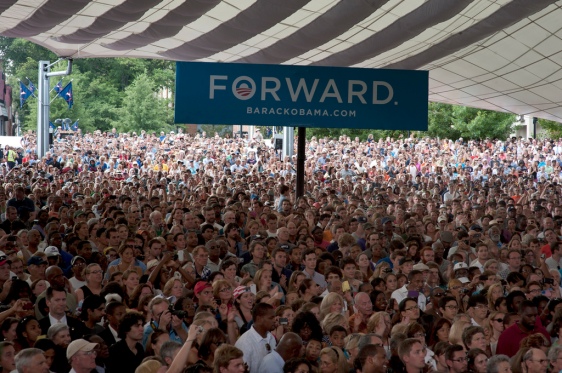



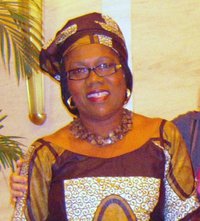




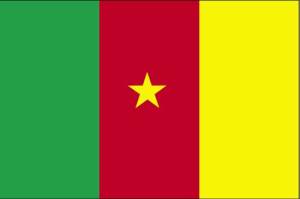


 President Ellen Johnson Sirleaf in a photo, shaking hands in 2008 with Julu
President Ellen Johnson Sirleaf in a photo, shaking hands in 2008 with Julu The price we paid in the Liberian civil war (
The price we paid in the Liberian civil war (
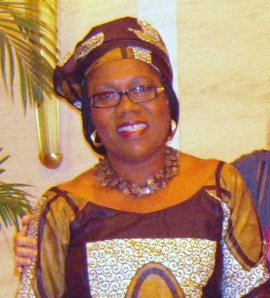


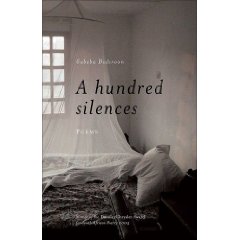


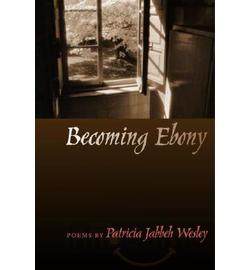

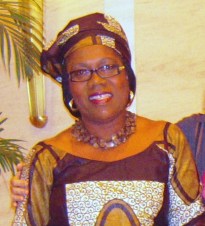

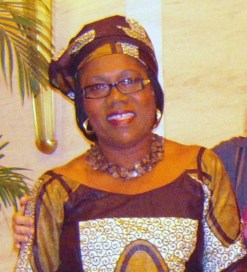
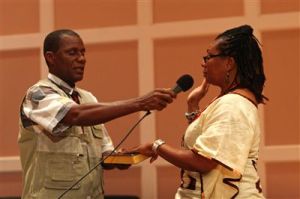 Doris Parker, a friend of mine and Founder and Director of the Liberian Women’s Initiative taking the oath before the TRC in Saint Paul, MN, June 2008
Doris Parker, a friend of mine and Founder and Director of the Liberian Women’s Initiative taking the oath before the TRC in Saint Paul, MN, June 2008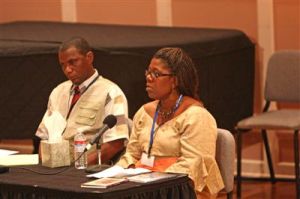 Here I am, testifying before the TRC also in MN, June 2008. I broke down several times during my testimony and during the testimony of others. There is no explanation on earth for the kind of cruelty Liberians suffered at the hand of Warlords and their armies.
Here I am, testifying before the TRC also in MN, June 2008. I broke down several times during my testimony and during the testimony of others. There is no explanation on earth for the kind of cruelty Liberians suffered at the hand of Warlords and their armies.
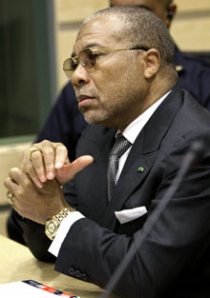

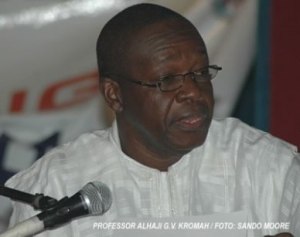
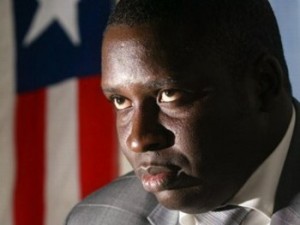
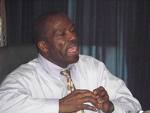
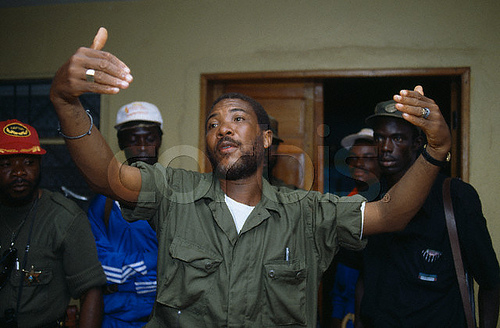 Image by ? Patrick Robert/Sygma/CORBIS
Image by ? Patrick Robert/Sygma/CORBIS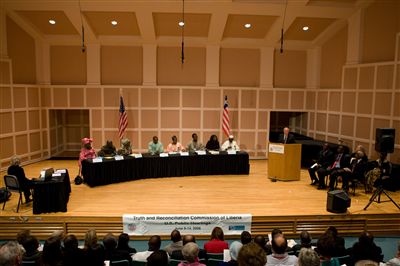 The Truth Commission & Reconciliation Hearings in MN.
The Truth Commission & Reconciliation Hearings in MN.
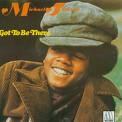 Michael Jackson, the Child Star—
Michael Jackson, the Child Star—
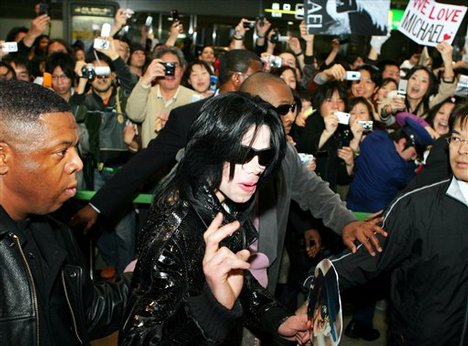


You must be logged in to post a comment.